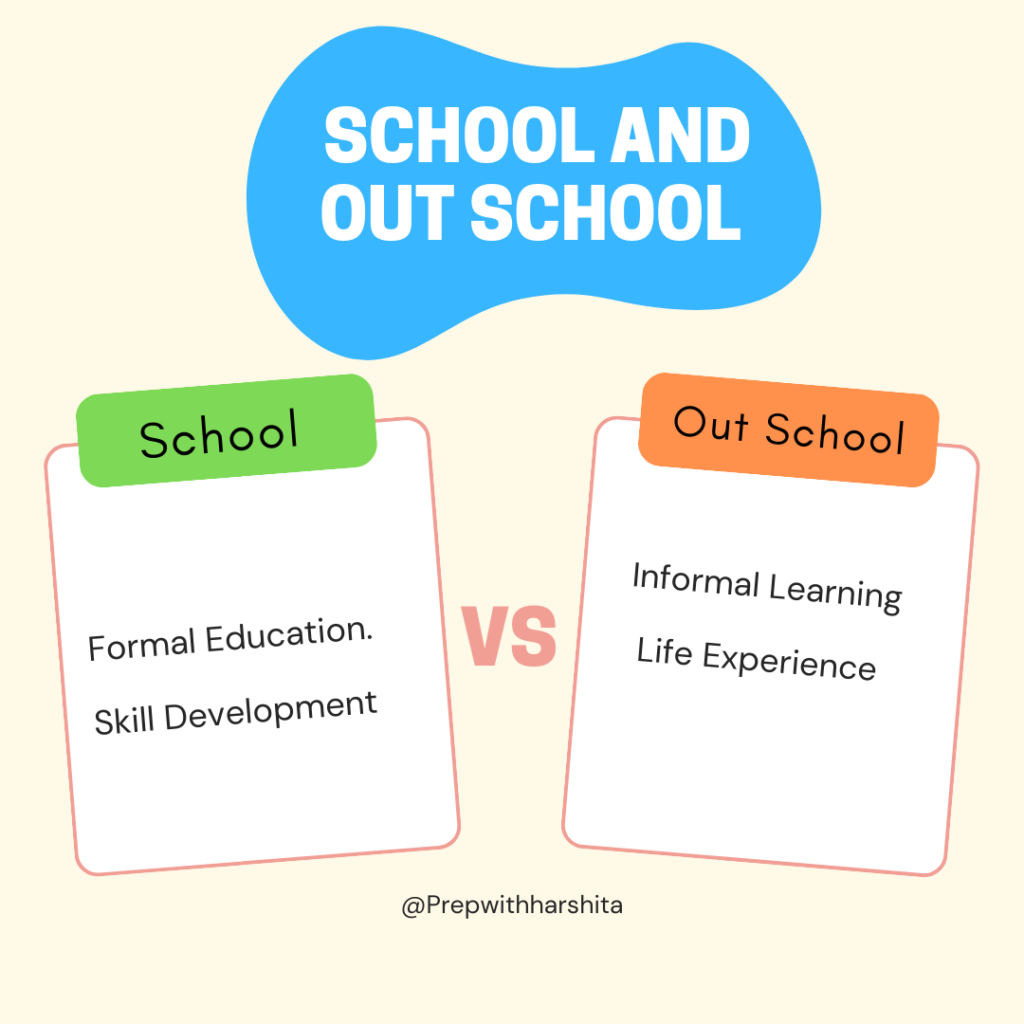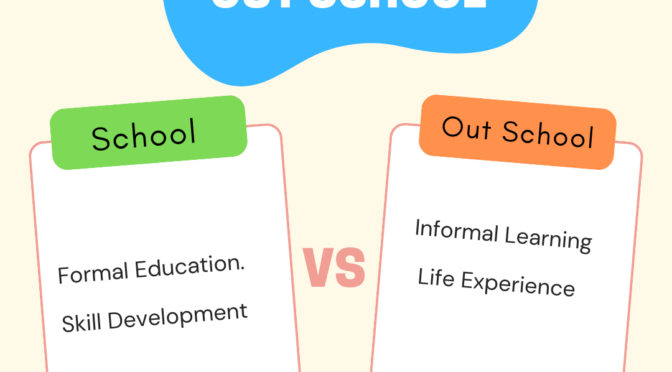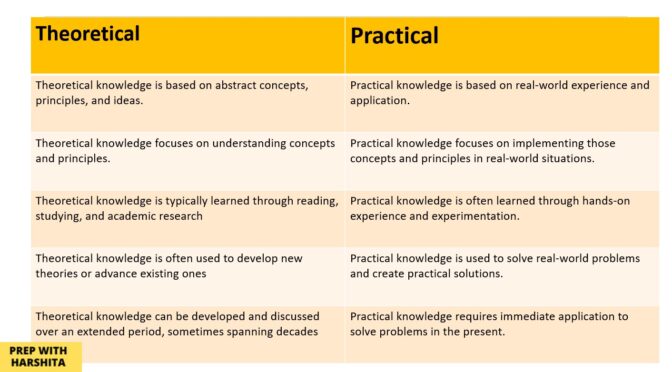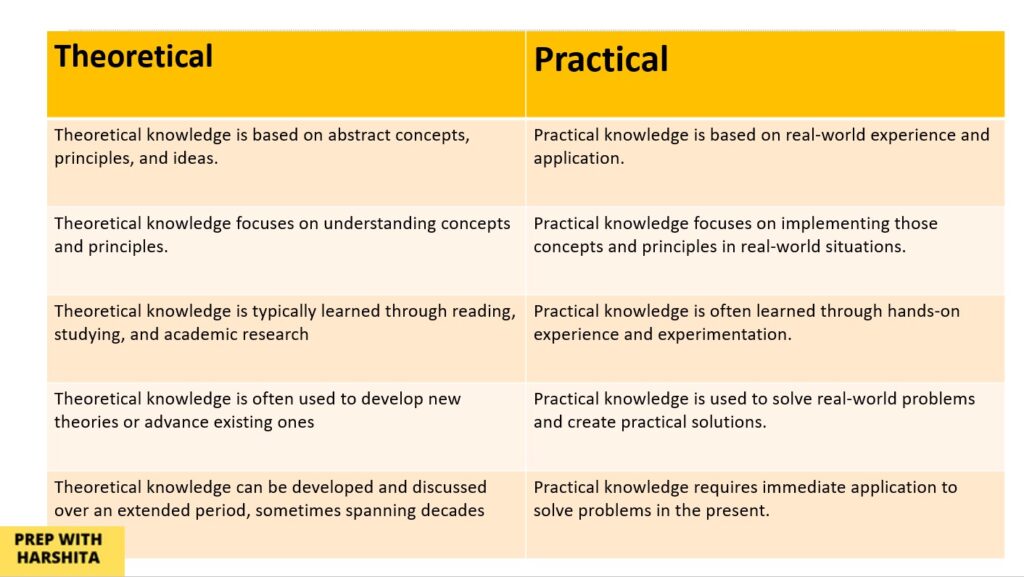Knowledge can be acquired both in School and out of school settings. Here are some facets of knowledge that can be gained in each setting:
In-school knowledge:
- Formal education: This includes knowledge that is taught in formal settings such as classrooms, lectures, and tutorials. It is typically structured and follows a set curriculum.
- Skills development: Schools also provide opportunities for students to develop a wide range of skills such as critical thinking, problem-solving, communication, and teamwork.
- Socialization: Schools provide a platform for students to interact with their peers, form relationships, and develop social skills.
Out-of-school knowledge:
- Life experience: Life experiences, such as traveling, volunteering, and working, can provide valuable knowledge and insights that cannot be learned in a classroom.
- Informal learning: This refers to knowledge that is gained through self-directed learning, reading, and exploration. It is typically not structured or part of a formal curriculum.
- Hobbies and interests: Pursuing hobbies and interests can lead to the acquisition of specialized knowledge and skills. For example, a person who loves gardening may become knowledgeable about plants and soil types.
It is important to note that both knowledge are important for personal and professional development.
Also Read : Theoretical and Practical

Also Visit : Prep with Harshita



